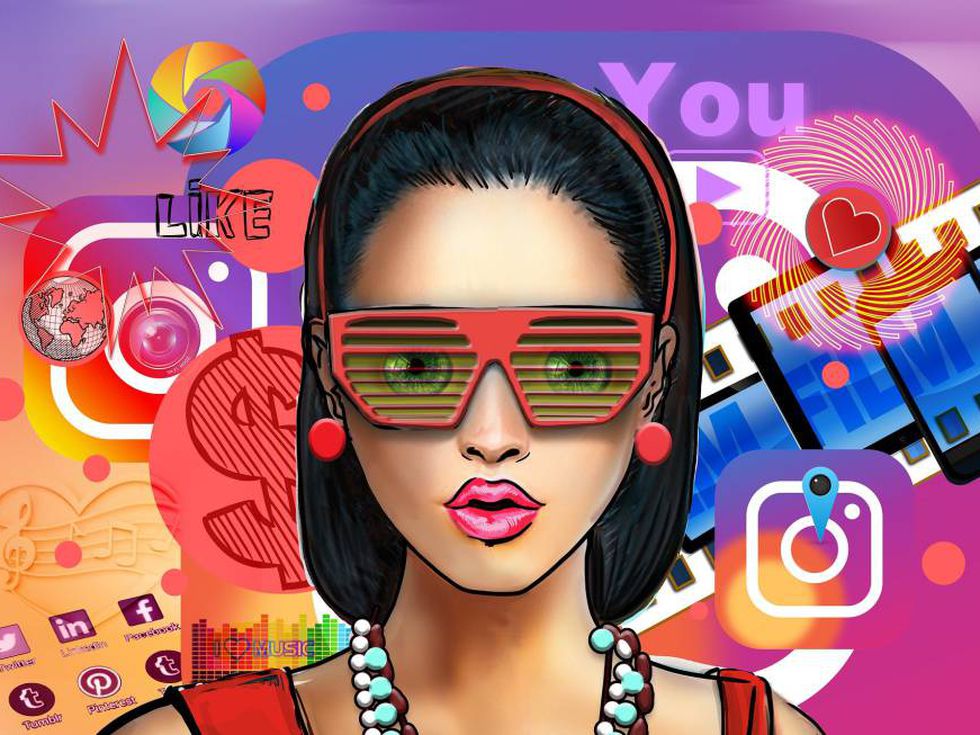People often talk about wanting to improve their personal branding, as it is sometimes called in the marketing world. You no doubt know what a business brand is: we refer to brands regularly whenever we talk about influencer marketing. But you probably don’t think much about having a brand yourself.
The idea of “personal branding” is unusual for most people. But in this online age, when things, both good and bad, last forever on the internet, personal branding can be seen as more important than ever. Produce marketing ideas that make you better than your competitors.
What is your personal brand
Your personal brand is how you promote yourself. It is the unique combination of skills, experience and personality that you want the world to see about you. It is the narrative of your story, and how it reflects your behaviour, demeanour, spoken words, non-verbal language and attitudes.
You use your personal brand to differentiate yourself from others. If you do it right, you can link your personal brand to your business in a way that no corporate brand can achieve.
Professionally, your personal brand is the image people see of you. It can be a combination of how you are seen in real life, how you are portrayed in the media, and the impression people take away from the information about you available on the Internet.
You can ignore your personal brand and let it develop organically, possibly chaotically, out of your control, or you can help build your personal brand so that it represents you as the person you want to be.
In the days before the Internet, your personal brand was really your business card. Unless you had a high media profile or were the face of advertising, few people would have heard of you. In today’s very public world, where every little action is widely discussed on social media, you are much less anonymous.
Why you should build your personal brand
Your personal brand can be vital to you professionally. It is the way you present yourself to your current and potential clients. It gives you the opportunity to make sure that people see you in the way you want them to, rather than in an arbitrary and possibly damaging way.
It gives you the opportunity to highlight your strengths and passions. It helps people feel they know you better, and people are much more trusting of those they feel they know; even public people they’ve never met in person.
This is especially evident at election time. While many people seek out candidates’ opinions on issues important to them, other voters have less interest in the process. Instead, they vote for a name they recognise. It is not surprising that candidates with strong personal brands succeed in politics, regardless of their political views or beliefs. Regardless of one’s opinion of Donald Trump as president, for example, there is no denying that he has built a strong personal brand, which helped encourage many people to vote for him.

The importance of personal branding
You have to create a strong personal brand if you want to be seen as influential. Your personal brand helps you stand out from the crowd. You can use your personal brand to showcase your knowledge and skills in your areas of expertise.
In many ways, your personal brand is what makes you memorable. It’s your personal brand that helps you stand out from the thousands of others like you.
Millennials, in particular, are wary of advertising. 84% of millennials trust neither ads nor the brands that create them. However, they are willing to believe the people they feel they “know”, even the entrepreneurs behind the brands they loathe so much.
This has meant a major rethink in the way companies market themselves. In fact, this is one of the reasons why influencer marketing has been so successful in recent years.
There has been a move towards personalising the core personas of a business. Obviously, this is easy for a small business – there is little difference between a sole trader and your business. It can be more difficult for large companies. But some people manage it well. Steve Jobs used personal branding long before the phrase became known to distinguish himself as the face of Apple. Likewise, Elon Musk’s personal brand is probably better known than Tesla’s corporate brand.
It makes sense for any business owner or manager to first establish a link with potential customers on an individual basis before attempting to convey the company’s message.
What to consider when creating your personal brand
Building a personal brand requires extensive self-reflection and introspection. It helps to know yourself, something surprisingly few people do. Most people find it very difficult to describe themselves, although they often find it easier to explain how they want to be.
If the ultimate goal of your personal brand is to improve the performance of your business, you first need to make sure you know who your target customers are. You want your personal brand to match your target clientele and their wants and needs.
This is not new. Entrepreneurs have been doing it for many years, long before the Internet existed. Think of the image Hugh Hefner portrayed for virtually his entire adult life. He probably never heard of personal branding, but he let himself become the face of the Playboy empire and lived the lifestyle his magazine readers envied. She would not have been able to live her lifestyle, however, if she had run a more conservative company, aimed at more politically correct clients.
Ultimately, you want to build a reputation as someone who cares about your customers or the people who follow you.
It’s crucial to find, listen to and engage with your potential customers. A crucial part of your personal brand is to make sure you are human, with the same problems as your target market. The only difference is that you can demonstrate that you have found a solution to some of these problems, which you are willing to share with others.
You don’t want to come across as a stereotypical used car salesman, even if you are in the business of selling cars. Cynical consumers see companies as being in the business of selling. The goal of personal branding is to take a step back and de-emphasise the importance of selling.
Today, you can’t ignore the importance of social media. Part of your personal branding should include having accounts on the social networks where your audience spends their time. And you’ll want to accept friend requests freely: you don’t want to set your accounts to private. If you really want to have a Facebook account just for your friends and family, you should consider creating another one with a different name for it.
The importance of coherence
You want your personal brand to be consistent. At all times you want to be true to your brand.
It’s not just about behaving in a way that is consistent with your image, although that’s important. It also includes factors that are more reflective of the company’s brand. You’ll want to decide on a consistent colour scheme and font combination. And you will want to use these colours and fonts throughout. They should be the same on your website, on your social accounts, on your business cards and on anything else you have in print. If you represent a business, they should match your business colours and fonts.
Here you’ll want to look at everything you use publicly. You should even look at things like the footers of your emails, your stationery, bills and invoices, and any leaflets you hand out. You might even go so far as to buy a car that matches your preferred colour scheme and wear ties or other suitably coloured clothing to any public event you attend.
The secret to successful personal branding is underlying consistency. You are trying to establish an external representation of “you”. This means you have to act in a way that is consistent with that representation.
This is also why the public may react very differently to the news that two people have the same kind of behaviour. It is possible that an act that would shock them if done by the first person may be entirely consistent with the second person’s expectations.
For example, imagine the reaction to the news that a certain politician took drugs. In most cases, that would be the death of their political career: it would be completely inconsistent with their personal brand and public expectations. On the other hand, suppose we heard that a heavy metal rock star was on drugs. That would not be news. It would most likely fit in with your expectations, and might even enhance your reputation among your core audience.
The average person representing a small business probably doesn’t have such extreme views about their personal brand. However, you still need to act in a way that matches your perceived image. If you present yourself as attentive and interested in your customers, it is crucial that you listen to their complaints and try to solve any problems they may encounter with your product.
But above all else, you want your personal brand to be relatively authentic. Sure, you can ignore some of your personal flaws, and you may have to tweak it a bit to match the perceptions of your target audience, but it needs to sound genuine. It’s not hard to spot a fake person, living a life of make-believe.
What you want is for your personal brand to match what people say about you when you are not present. If people don’t believe in your personal brand, you’re facing a clear lack of credibility.
Techniques to build your brand
Don’t forget the offline world. Your personal brand should encompass all the places your customers can find you. Old-style business cards are as crucial to your brand as your social pages. Just remember to keep the theme consistent across them.
Carry business cards everywhere. This is as relevant now as it was forty years ago. Pull out a card every time you see an opportunity to engage with someone new who matches your target audience.
Ideally, your personal brand should encompass your entire public life. So this encompasses even the way you dress whenever you are in public. I can’t imagine Donald Trump walking down the street in old jeans and a T-shirt, any more than I would expect a rock star to go shopping in a smart suit. You want your entire public image to match the persona of your personal brand.
Example: An Instagram influencer always wears the same style of clothing, photographs look professional and have a similar format, uses the same type of Instagram font in their stories or posts. And of course your face and name is the most important part of your personal brand, which is why it should appear whenever you upload something on the social network.








